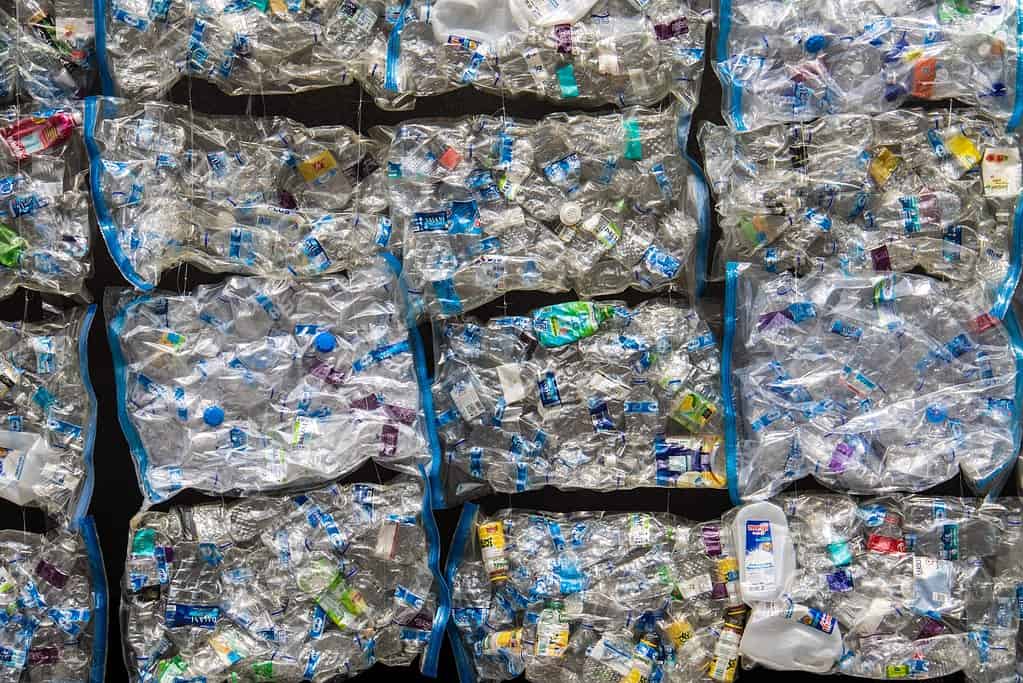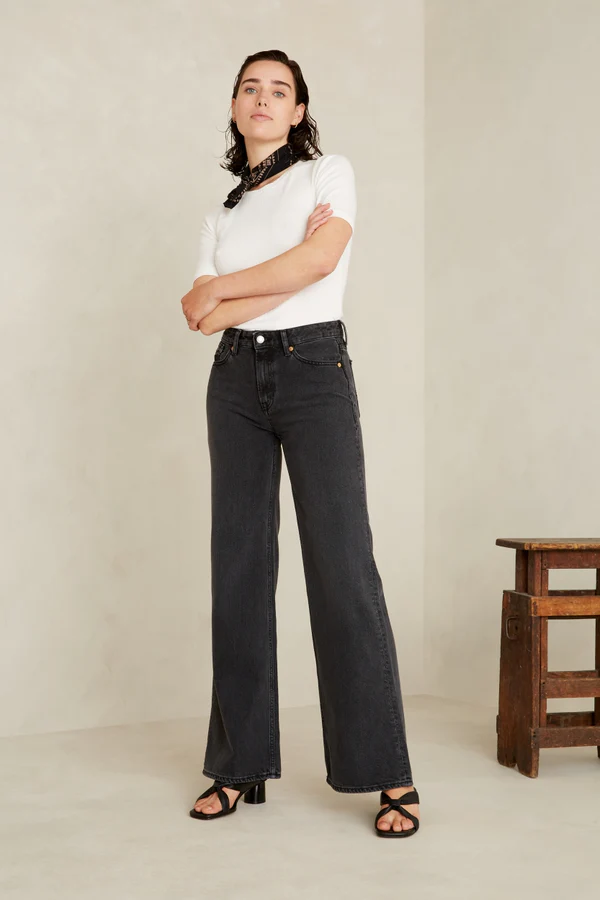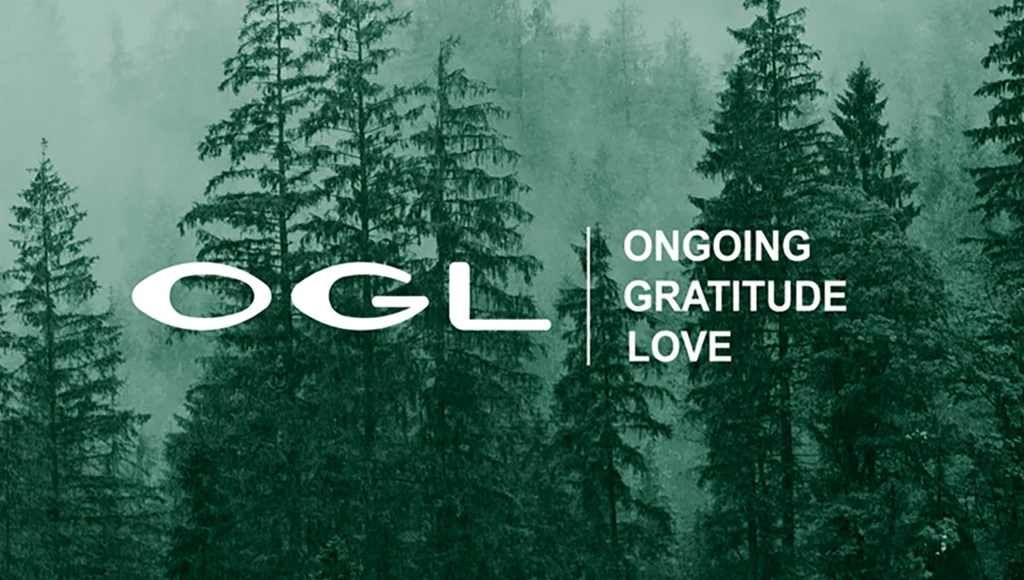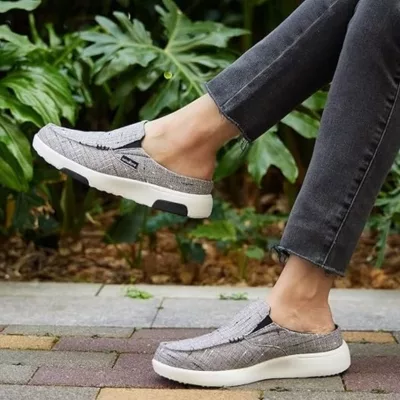H&M Conscious is an evergreen clothes section launched by the brand past year. However, is the brand really delivering on its “conscious” promise in 2024? H&M, a fast fashion company, is notorious for its exploitative practices and is featured in almost every list of brands most harmful to the environment. But are they really that bad?
Sometimes, fast fashion brands also try to adopt sustainable practices and trends via their lineup. With their new H&M conscious line, they are focusing on being eco-friendly and ethical, right? Well, spoiler alert. They really aren’t. In fact, they are comfortably practicing the age-old tactic of hoodwinking customers through greenwashing.

So now the question arises. Is H&M conscious sustainable? What exactly is this lineup about? Is it as conscious as it claims to be? Let’s delve into the many secrets and trickeries of big corporates like H&M and their H&M Conscious collection.
What is H&M Conscious Collection?

While I was scrolling through H&M’s website, I came across something very intriguing. The H&M conscious collection. I was pleasantly surprised. Is H&M finally giving eco-friendly consumers like me a sustainable alternative? Can I finally wear the latest fast fashion trends while also not harming the environment?
According to H&M’s website, products in their conscious line contain at least 50% of sustainable materials such as recycled polyester or organic cotton. By buying these products, you the consumer, earn conscious points. By the way, you can use these points to earn discounts on other products.
H&M also launches a Conscious Exclusive collection twice a year in which they incorporate new eco-friendly materials and technologies which are then used in their main collection. They introduced three new fabrics in 2020: Hemp Biofibre, made from oilseed hemp crop waste, Naia Renew, a cellulosic fibre and Vegea, vegan leather made from grapes.
Well, that sounds pretty good. Big corporations are finally realizing the errors of their ways and laying down the building blocks towards a more sustainable future. But trust me guys, behind the curtains, the situation is entirely different.
How Sustainable is H&M Conscious?
I am not blindly being a skeptic. It is unfortunately a fact that big corporates like H&M are purely driven by profits and do little to nothing to save the environment. Because exploitative and unethical means of production are way more profitable than sustainable ones.
According to a report in June 2021 titled “Synthetic Anonymous“, H&M’s conscious line has allegedly been found to contain a higher percentage of damaging synthetic materials compared to its main line. Moreover, the report identified H&M as the worst offender when it comes to false green claims with 96% false claims.

H&M reported that 90% of its recycled polyester comes from single-use plastic bottles. Except, this is also a false solution created by big brands to lure you into believing they are ethical. Once recycled plastic is turned into clothes, it cannot be recycled again.
Essentially, H&M Conscious clothes will now either be dumped in landfills, incinerated, or thrown away in nature. All of this is extremely detrimental to the environment. Secondly, by turning plastic bottles into clothes, you are removing them from the circular recycling loops wherein they can be used as plastic bottles again.
Plastic bottles can be reused multiple times (unlike when used to make clothes) reducing the production of virgin single-use plastic for creating new bottles. Finally, the use of these plastics does not stop the much bigger issue of microplastics that are shed during cloth production that are highly polluting to the ocean, the air around us as well and the food we consume.
H&M’s recycling program is also not without its flaws. While they confidently state in a myriad of their ads that they will use fabrics donated to them to create new clothes, the reality is that only 35% of donated garments are actually utilized.
Most of their clothes consist of blended materials that don’t break down easily, like a studded sweater containing 52% polyester, 41% acrylic, 4% wool, 3% elastane. We’re not sure how H&M Conscious would be any different. Donated clothes are more often than not resold in markets in countries like Kenya or dumped in landfills. In fact, only 0.7% of the clothes manufactured by H&M were recycled material according to their own report in 2018, essentially proving that even their recycling program is not really sustainable.
While H&M Conscious confidently states in its ad campaigns that it aims to reduce waste and that we, the consumers can help them do so by shopping from their conscious line, the reality is that shopping from H&M Conscious doesn’t reduce waste but adds to it. Most of the products in the Conscious line are made of blended materials such as polyester, acrylic, wool etc. which do not break down easily. These products will not be recycled but end up in a landfill (as plastic recycled for clothes cannot be recycled again) and so your noble quest to shop more sustainably goes quite literally to waste.
If brands were truly sustainable, they would discourage consumerism and overconsumption. However, H&M does not want that. They want to earn as much profit as they can. In fact, their entire existence relies on customers buying more than they need which is why their conscious line is marketed in such a way as to tempt you into consuming more.
According to research by the Stern Center for Sustainable Business, products marketed as being sustainable sell much faster than products that are not.
Through tactics like conscious points and vouchers, H&M Conscious is leading you to consume more and more. They use conscious points to lure customers into purchasing not only garments from their supposedly sustainable line but also their low-quality fast fashion clothing designed not to last.
The H&M conscious collection has been criticized by Norway’s consumer watchdog in 2019 for their misleading marketing tactics and for providing insufficient information on the sustainability of its collection. H&M has also repeatedly been accused of greenwashing.
Is HM conscious Greenwashing?

In an episode of Simpsons titled ‘The Old Man and The Lisa’, the evil millionaire Mr. Burns decides to promote recycling in order to reinstate his business empire. All the townspeople including Lisa Simpson, an environmental activist help him in his noble cause.
However, when taking a tour of his factory, Lisa is appalled to witness that he has been using recycled material in order to catch fish and other sea creatures to sell slurries.
Lisa realizes that when he tries to be good, he is even more evil and damaging to the planet which is basically what profit-hungry brands like H&M and their sustainable-posing H&M Conscious are like.
Greenwashing in simpler terms is when a company advertises its products and policies as being eco-friendly while continuing its exploitative practices behind the curtains. It is a form of manipulation and trickery taking advantage of consumer’s shifting preference towards environmentally conscious brands.
Motivated by the incentive to make profits, boost sales, and preserve brand relevance in a changing world, companies blow their budget on amazing marketing instead of actually doing anything to build a sustainable business model. What’s worse is that most of these companies abuse the rise of eco-consciousness to conceal the more harmful aspects of production that go on behind the scenes such as poor labor conditions, animal abuse, and environmental degradation.
Of course, the more they do this the better they get at deceiving you.
Is H&M ethical? That’s debatable. H&M is notorious for its abysmal labour conditions exploiting children, underpaying workers, and subjecting its labourers to horrific unsafe conditions.
As something that markets itself as ’conscious’, is it not H&M’s duty to safeguard its workers? In 2018, H&M had 4.3 billion dollars worth of unsold clothes which was 7% more than the year before.
We’re sure that H&M Conscious will also dispose its unsold inventory by incinerating them to make way for the newer fashion trends. Again, for a company that unrelentlessly advertises how green it is and how it is trying to reduce waste, its actions are completely contradictory.

H&M is a pro at manipulating customers into believing they are ethical and eco-friendly. They conveniently shroud their exploitative practices in the guise of being sustainable and conscious. They are misdirecting your attention by giving you something to look at. Behind the curtains, they continue to be unethical.
They distract consumers by making them applaud H&M Conscious for doing the bare minimum and honestly, this bare minimum is ending up being more detrimental to the environment (much like Mr. Burns in The Simpsons).
There is something morally wrong in tapping into the guilt of consumers and using the principles of psychology and marketing to manufacture their consent and make them make economic decisions they otherwise would not. You know the consumer wants to save the planet.
You know they want to create a change so instead of doing it yourselves, you make the consumer a scapegoat, put the onus on them to be sustainable, give them false hope, and make them believe they are being eco-friendly when in reality you are just manipulating them into buying your products to gain profit.
What’s even worse is that they exploit bright young climate change activists in their ad campaigns in a way that mocks the very real issues these children stand for. The ugly truth is that climate change unevenly affects different strata of society. It is the poor, marginalized, and tribal people who feel its immediate effects and not the top 1% of society who actually own these big corporations.
They have absolutely no incentive to be sustainable even though it is they who have the power to create a significant change. They do not feel morally obligated to save the planet as it comes at the cost of reduced profits. So, the only reason H&M Conscious is even being launched is because of the rise in environmental awareness amongst its consumer base. It definitely does not come from an intrinsic belief in sustainability but it’s only here to preserve its brand relevance.
It is important for us, the consumers to recognize it and make actual sustainable choices. If questions like Is H&M ethical surround you, start making small changes at home. Practice thrifting, re-wear your clothes as many times as possible, dont give in to transient trends, try not to dispose off any garments and donate them to the right places (like orphanages), and buy from ethical brands (check out our site to shop more ethically) and make an active effort to recognize when companies are greenwashing.
Eco-Conscious Alternatives: Top 10 Sustainable Fashion Brands
Understanding that H&M Conscious is one big gimmick is sobering for sure. But it’s not the end of the world. We have made a list of leading brands that offer affordable and styling clothes for casual and fancy wear. Here are some brands that walk the talk to simplify your eco-conscious shopping journey. Here’s a list of 10 go-to fashion brands that you can buy from instead of H&M Conscious:

Billy Reid is committed to redefining luxury fashion through a lens of sustainability. The brand’s collections are crafted with meticulous attention to detail using ethically sourced materials and eco-friendly production methods. Billy Reid prioritizes the use of organic fabrics, recycled fibers, and sustainable dyes to reduce environmental impact.
Each piece embodies timeless style and exceptional quality, designed to last and minimize waste. By choosing Billy Reid, customers are embracing sophisticated Southern charm while supporting a brand dedicated to a sustainable and responsible future.

Yumi Kim is dedicated to creating vibrant, feminine fashion with a strong commitment to sustainability. The brand carefully selects eco-friendly materials and partners with ethical manufacturers to ensure every piece is as kind to the planet as it is beautiful.
Yumi Kim’s collections feature timeless designs and high-quality fabrics that prioritize both style and longevity. By choosing Yumi Kim, customers support a brand that values environmental responsibility and strives to make sustainable fashion accessible and stylish.

Able Clothing is a leader in sustainable fashion, dedicated to empowering communities and protecting the environment. The brand focuses on using eco-friendly materials, ethical production practices, and transparent supply chains.
Each piece from Able Clothing is designed to last, reducing waste and promoting a more sustainable wardrobe. By choosing Able Clothing, customers support fair wages and safe working conditions for artisans worldwide, while also making a positive impact on the planet. Able Clothing proves that style and sustainability can go hand in hand.

Julian Fashion Boutique combines chic, contemporary style with a deep commitment to sustainability. The boutique curates collections from designers who prioritize eco-friendly materials and ethical production methods. Julian Fashion Boutique ensures that every item in their selection not only embodies sophistication and elegance but also aligns with sustainable practices.
By shopping at Julian Fashion Boutique, customers can enjoy high-fashion pieces while supporting a brand that values environmental responsibility and ethical craftsmanship. Julian Fashion Boutique makes it easy to look good and feel good about fashion choices.

Outerknown is at the forefront of sustainable fashion, dedicated to creating stylish, high-quality clothing with a minimal environmental footprint. The brand uses eco-friendly materials such as organic cotton, recycled polyester, and hemp, ensuring every piece is both durable and sustainable.
Outerknown’s commitment to ethical manufacturing includes fair labor practices and transparency in their supply chain. By choosing Outerknown, customers support a brand that prioritizes the well-being of the planet and its people, proving that style and sustainability can coexist seamlessly.

Princess Highway embraces vintage-inspired fashion with a strong commitment to sustainability. The brand focuses on using eco-friendly materials and sustainable production methods to create timeless pieces that stand out.
Princess Highway prioritizes organic fabrics, recycled materials, and ethical manufacturing processes to ensure their collections are as kind to the planet as they are stylish. By choosing Princess Highway, customers support a brand that values environmental responsibility and offers unique, high-quality fashion that doesn’t compromise on sustainability.

Kings of Indigo leads the way in sustainable denim and apparel, merging classic American and Japanese styles with a commitment to environmental responsibility. The brand uses organic cotton, recycled fibers, and innovative, eco-friendly dyeing techniques to minimize their environmental impact.
Kings of Indigo is dedicated to ethical manufacturing practices, ensuring fair wages and safe working conditions for all workers. By choosing Kings of Indigo, customers support a brand that champions sustainability, durability, and timeless design in every piece.

Greatness Wins is committed to setting a new standard in sustainable activewear. The brand utilizes eco-friendly materials, such as recycled polyester and organic cotton, to create high-performance sportswear that is both durable and kind to the environment.
Greatness Wins ensures ethical production practices, maintaining transparency and fair labor conditions throughout their supply chain. By choosing Greatness Wins, customers support a brand that prioritizes sustainability without compromising on quality or style, making every workout an opportunity to contribute to a healthier planet.

Daise redefines modern fashion with a strong emphasis on sustainability and ethical practices. The brand crafts its collections using eco-friendly materials such as organic cotton, bamboo, and recycled fabrics, ensuring that every piece is both stylish and environmentally responsible.
Daise is committed to fair trade principles, supporting artisans and workers with fair wages and safe working conditions. By choosing Daise, customers embrace contemporary designs that promote a sustainable lifestyle, proving that fashion can be both beautiful and kind to the planet.

Buck Mason combines timeless American style with a steadfast commitment to sustainability. The brand focuses on creating high-quality, durable clothing using eco-friendly materials such as organic cotton and recycled fibers.
Buck Mason’s production methods prioritize minimal waste and reduced environmental impact, ensuring each piece is crafted responsibly. By choosing Buck Mason, customers invest in classic, well-made garments that stand the test of time while supporting a brand dedicated to environmental stewardship and ethical manufacturing practices.
Your Go-To Alternative!
Our commitment to sustainability extends beyond fashion; we’re dedicated to guiding you along your entire eco-friendly shopping journey. That’s why we’re excited to introduce you to Ecowiser, your one-stop destination for a diverse range of products, including beauty, home essentials, apparel, groceries, toys, electronics, and much more. At Ecowiser, we meticulously research and thoughtfully curate our selections to fulfill your sustainable living requirements. It’s not just about shopping; it’s about making choices that align with your values and contribute to a healthier planet. With us, rest assured that every purchase is a step towards sustainability!
Conclusion
While H&M has undoubtedly made strides in its journey toward sustainability, a holistic assessment reveals areas that need attention. It’s commendable that the brand has initiated eco-friendly practices and launched sustainable collections. However, true sustainability goes beyond isolated efforts and requires consistent transparency and honesty about the entire supply chain and production processes. For a brand of H&M’s magnitude, it’s crucial to strike a balance between celebrating achievements and acknowledging areas of improvement. By doing so, they can set a precedent for genuine commitment to sustainability in the fashion industry.
Curious about the sustainability practices of other brands? Dive into our curated fashion blogs for detailed reviews, insights, and the latest in ethical fashion trends. Equip yourself with knowledge and make informed choices.









